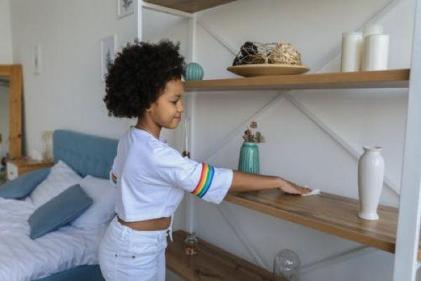By the time your child is a preschooler, he or she is learning that there’s more to life than being or playing by his or her self. At this age, social skills are coming to the fore in a big way, and it’s the perfect time to encourage those moments of generosity and sharing that you’ll start to notice from your child.
One of the best ways to instil generosity in your child is to be generous. Be willing to share, and to offer others assistance if they need it, and your child will notice, and emulate that behaviour.
Teach your child that sharing doesn’t mean he or she has to give something away. It’s okay to share a toy with a friend, if you know it’s coming back at the end of a play date, or even to lend something to a friend.
Make a point of pointing out other people’s needs and desires. Talk to your child about what he or she thinks you, your partner, or someone else may like – that way, your child will start to realise that other people want things too.
Praise your child when he or she exhibits generosity, and make a point of reprimanding them gently when they don’t want to share.
Allow your child to keep a few things that he or she does not share with anyone else. It’s okay to keep a few special things that you don’t share, if you share most of the other things you have. Let your child put those toys somewhere special when friends come over, so that they won’t be played with by anyone else. Knowing that he or she has a few special items can make sharing the rest of his or her belongings a little easier for your child.
Consider external factors. Major life upheavals, like moving, or a new baby in the family, can cause your child to cling to his or her belongings for stability and solace. If your child is being stingy because of a specific situation, it may be worth being a little more lenient until things normalise again.
One of the best ways to instil generosity in your child is to be generous. Be willing to share, and to offer others assistance if they need it, and your child will notice, and emulate that behaviour.
Teach your child that sharing doesn’t mean he or she has to give something away. It’s okay to share a toy with a friend, if you know it’s coming back at the end of a play date, or even to lend something to a friend.
Make a point of pointing out other people’s needs and desires. Talk to your child about what he or she thinks you, your partner, or someone else may like – that way, your child will start to realise that other people want things too.
Praise your child when he or she exhibits generosity, and make a point of reprimanding them gently when they don’t want to share.
Allow your child to keep a few things that he or she does not share with anyone else. It’s okay to keep a few special things that you don’t share, if you share most of the other things you have. Let your child put those toys somewhere special when friends come over, so that they won’t be played with by anyone else. Knowing that he or she has a few special items can make sharing the rest of his or her belongings a little easier for your child.
Consider external factors. Major life upheavals, like moving, or a new baby in the family, can cause your child to cling to his or her belongings for stability and solace. If your child is being stingy because of a specific situation, it may be worth being a little more lenient until things normalise again.





